Cane growers study innovation on tour to Springsure
NQ Dry Tropics recently took five Burdekin cane growers on an 1800 km road trip to check out new technologies and management systems that could help them improve the quality of water leaving their farms.
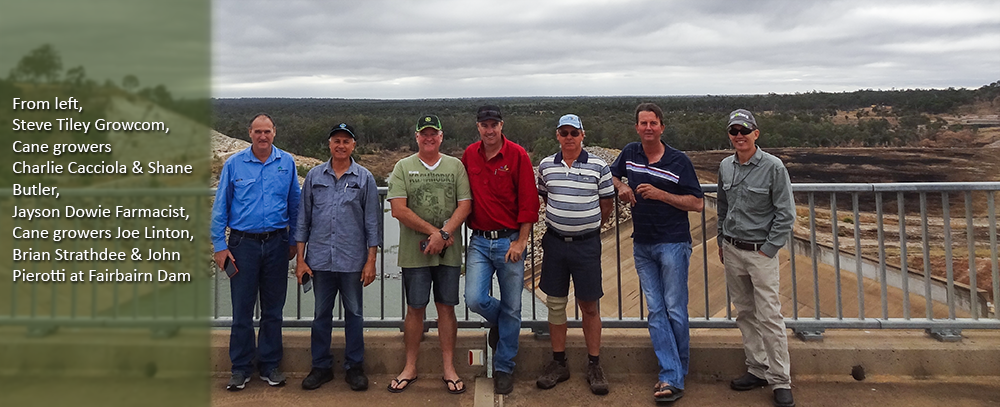
The tour went as far as Springsure, south of Emerald, and visited a number of innovative farming operations along the way, focusing on water management, precision agriculture, complementary crops, biocommodities, liquid fertilisers, soil symbiosis and farm management systems.
It was part of NQ Dry Tropics’ Sugarcane Innovation Program, funded through the Australian Government GameChanger project; Project Catalyst; and the Australian Government Reef Programme.
NQ Dry Tropics Innovations Officer, Anthony Curro, said participants were impressed to see technologies that are helping farmers in other industries around the state better manage water, nutrients and pesticides on farm.
“NQ Dry Tropics is passionate about working with cane growers to improve the quality of water leaving their farms, and this tour provided an excellent opportunity to closely examine what’s going on outside the industry” he said.
“With each visit it became clear that farmers working across a range of commodities share an awareness about the environmental impacts of their farming practices,” he said.
On one of the tour’s first stops, the group visited Scott Simpson’s Bloomsbury farm to inspect his “skip row” cane trials (which reduces water and fertiliser use by leaving every other row of cane fallow). Despite having a limited water supply, Scott has improved gross margins over the whole farm, improved soil health and reduced compaction.
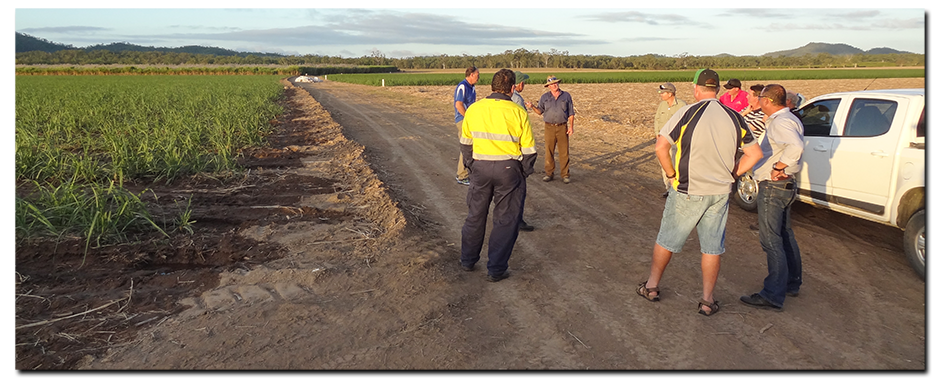
The tour also visited the Wilmar Bio-dundar Facility at Sarina, where new precision agriculture systems are leading to more efficient nitrogen use and reducing the level of nutrients entering the Great Barrier Reef catchments.
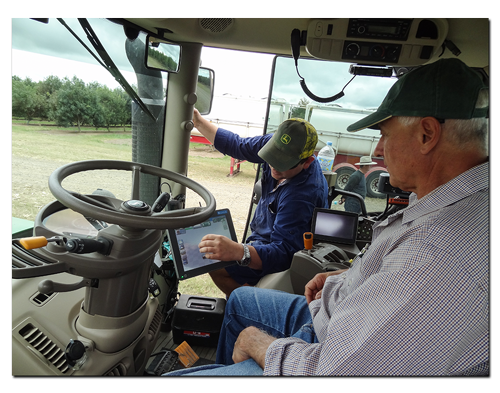
The growers were impressed by the lateral irrigator system irrigating 800 hectares of wheat, mung beans, sorghum, sunflowers and chickpeas at Ian and Gail Buss’ ‘Bambar Plains’, property in Springsure. By harvesting overland flow, the totally closed water management system reduces downstream impacts by preventing water leaving the field into streams or waterways.
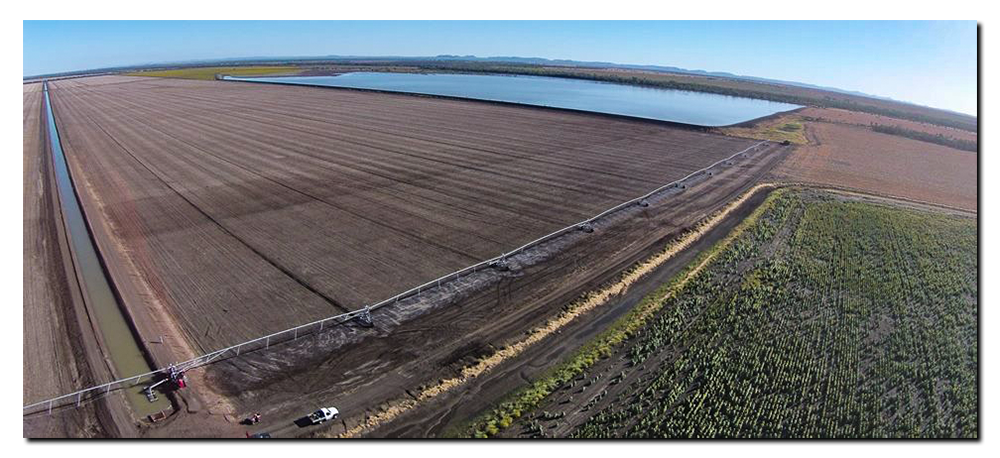
At Peter Bradley’s 10,500 hectare dryland grain property, ‘Lindley Downs’, the group viewed state of the art precision agriculture systems using Real Time Kinematic satellite navigation. The farming operation integrates the mapping system with soil testing, yield mapping during harvesting, soil moisture monitoring and variable rate fertiliser application.
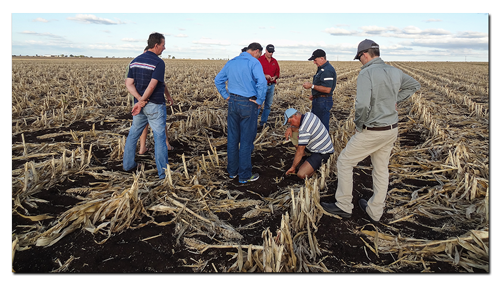
Simon Mattson’s sugarcane farm on the north side of the pioneer river in Maria was the final stop on the tour. Simon spoke about the decline in production in the region over the period of 15 years, and shared his thoughts on the relationship between long term monoculture and soil health.
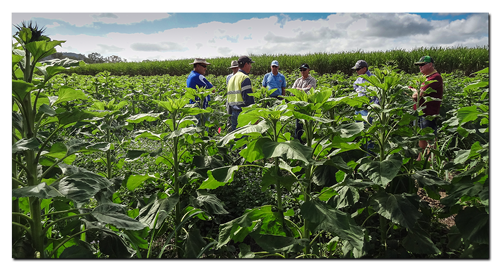
Burdekin grower Joe Linton took a lot from the tour: “ It’s great that there are other farmers that think like me”, he said.
‘Keep an open mind to different and new technology and ideas’ – Brian Strathdee
‘The trip has taught me to be open to new ideas’ – Shane Butler
‘We need to respect and protect our water availability’ – Jayson Dowie
‘Well organized and good range of topics’ – Steve Tiley
‘The tour was a huge success, engaging 13 primary producers in various commodities, who manage combined over 19000 hectares.’ – Anthony Curro
‘’Wherever the tour ventured, there was a common awareness of environmental impacts with farming practices’. – Anthony Curro
‘There is a movement forward in the primary industry, where farmers are utilising new technology and changing management systems with water, nutrient and pesticide for a sustainable future in farming’ – Anthony Curro
